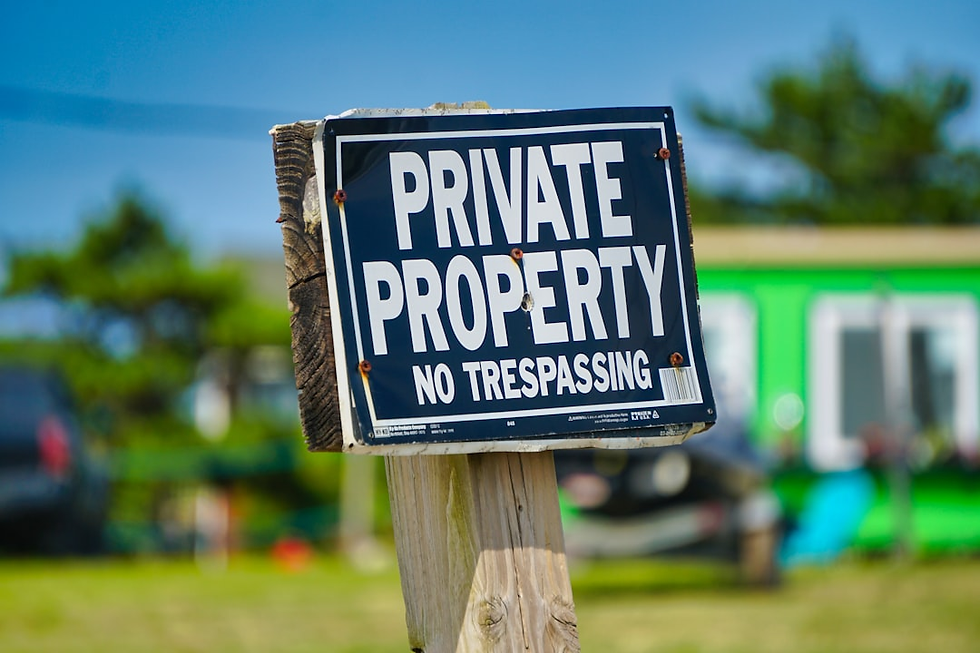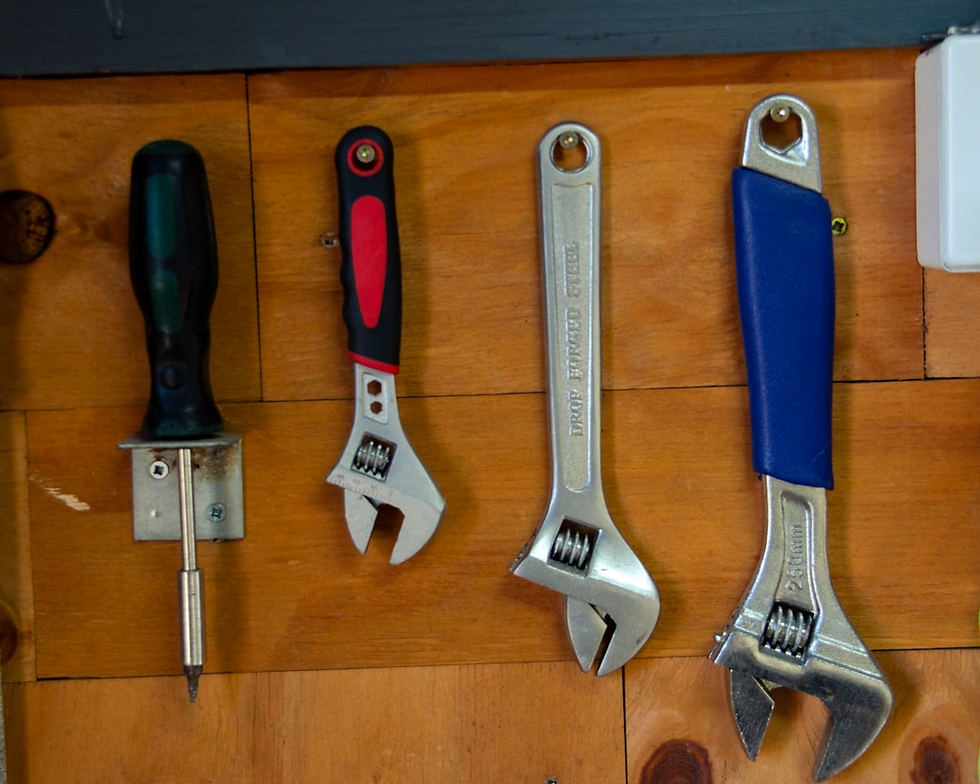Starting a Property Maintenance Business Without Losing Your Mind
- Daniel Rivera
- Jul 31, 2025
- 7 min read
Why Starting a Property Maintenance Business Makes Financial Sense

A property maintenance business, which provides repairs, upkeep, and improvements for properties, is a fast-growing opportunity. The market is projected to grow from $81.52 billion in 2024 to $98.88 billion by 2029. With rising property values, the demand for reliable maintenance services like HVAC, plumbing, landscaping, and general repairs has never been higher.
For entrepreneurs, this means significant earning potential, with self-employed handymen earning between $34,000 and $123,000 annually. Startup costs can be as low as $1,000-$4,000 for a solo operation.
However, starting a business involves navigating licensing, insurance, client acquisition, and daily operations. This guide breaks down the process into six manageable steps to help you launch and grow your property maintenance business successfully.
I'm Daniel Rivera, owner of Proactive Property Management. With years of experience helping New Jersey property owners manage maintenance, I've seen what makes these businesses succeed. This guide offers practical steps based on that real-world experience.

Laying the Foundation: Your Startup Checklist for a Property Maintenance Business
A solid foundation is crucial for success. Let's walk through the essential groundwork for your property maintenance business.
Step 1: Define Your Services & Business Plan
First, decide what services your property maintenance business will offer. This involves keeping properties functional, safe, and visually appealing through repairs and upkeep.

The Big Decision: Jack-of-All-Trades or Specialist?
While offering a wide range of services like landscaping, HVAC work, and plumbing seems appealing, it can spread you too thin. Juggling different insurance types, equipment, and employee skills is complex and inefficient.
The smarter play is to specialize. Focus on one or two related services, such as lawn care and landscaping or general handyman repairs. This helps you build a stronger reputation, streamline operations, and scale your business more effectively.
Residential vs. Commercial: Choose Your Market
Your target market affects everything from pricing to workflow.
Residential clients (homeowners, small landlords) typically pay faster and have more straightforward projects.
Commercial work can offer larger contracts but often involves slow payment terms and more complex management structures. Many businesses find residential work more profitable and less stressful.
Common services to consider include: Landscaping and Lawn Care, HVAC maintenance, Plumbing repairs, Electrical work, Painting and Drywall, General Handyman Repairs, and Cleaning services.
Your Business Plan: A Roadmap to Success
A business plan is your roadmap, forcing you to think through critical questions about pricing, competition, marketing, and contingency plans. It doesn't need to be a novel, but it should be a thorough and realistic guide for your business and a potential key to securing funding.
At Proactive Property Management, we've seen what property owners really need from maintenance professionals. If you want to understand the full scope of property services, check out more info about our property management services.
Step 2: Handle the Legal, Licensing & Insurance Essentials
This step is about building a protective legal shell around your business.
Choosing Your Business Structure
Sole Proprietorship: Simple to set up, but offers no personal liability protection. Your personal assets are at risk if the business is sued.
Limited Liability Company (LLC): The recommended choice for most. It protects your personal assets from business debts and lawsuits without the complexity of a corporation.
Corporation: Offers the strongest liability protection but involves more complex taxes and paperwork.
Essential Legal Steps
Get an EIN: Obtain a free Employer Identification Number (EIN) from the IRS. You'll need it for business banking and hiring.
Open a Business Bank Account: Keep business and personal finances separate. This is a legal requirement for incorporated businesses and a smart practice for all.
Insurance: Your Financial Safety Net
Property maintenance is risky. The right insurance is non-negotiable.
General Liability Insurance: Covers property damage or injuries caused by your work.
Professional Liability Insurance: Protects against claims of negligence or errors in your work.
Workers' Compensation: Mandatory if you have employees, covering their medical bills and lost wages from on-the-job injuries.
New Jersey Requirements
In New Jersey, you must register as a NJ Home Improvement Contractor with the Division of Consumer Affairs for most maintenance work like painting and carpentry. Additionally, check with local municipalities for any specific permits or licenses they require.
For more detailed guidance on legal requirements, check out more info about legal essentials.
Step 3: Secure Funding & Manage Your Finances
Let's talk money: how much you need and how to manage it.
Startup Costs & Earning Potential
A one-person operation can start with $2,000 to $4,000 for basic tools, a vehicle, marketing, and legal fees. A larger business with employees and commercial space will require $15,000 or more.
The earning potential is strong. Self-employed handymen can earn between $16.34 and $58.72 per hour, translating to $34,000 to $123,000 annually. See current wage data with this self-employed handyman hourly rate information.
Budgeting and Pricing
Tools: Invest in reliable, quality tools. Start with the basics and buy specialized equipment as you identify profitable services.
Pricing: Choose a strategy that fits your work. Hourly rates are good for unpredictable jobs. Flat-rate pricing is ideal for defined projects. Retainer agreements offer steady income from regular maintenance contracts.
Managing Your Finances
Income in this business can be irregular. Set aside money during busy periods to cover expenses during slow times. If you need startup capital, consider personal savings, loans from family and friends, SBA loans, or business credit cards. The key is to start lean and grow by reinvesting your profits.
Building and Growing Your Thriving Business
With the foundation set, it's time to build your brand, attract clients, and manage operations efficiently.
Step 4: Create Your Brand & Market Your Services
Your brand is your business's personality and the promise you make to clients. Marketing is how you introduce that personality to the world.

Choosing a Business Name
Select a name that is creative, memorable, and reflects your services. Consider names that communicate your mission ("Reliable Property Solutions") or use geographic identifiers for local trust ("Garden State Property Services"). Before finalizing, check for existing trademarks to avoid legal issues. Then, register a matching domain name to serve as your digital home base.
Marketing Your Services
Local SEO: Set up a Google My Business profile and claim your Yelp listing. Encourage satisfied clients to leave reviews to build trust and improve your ranking in local searches like "property maintenance near me."
Website: Your website is your 24/7 salesperson. It should clearly list your services, showcase your work with photos, and provide easy contact options.
Social Media: Use platforms like Facebook and Instagram to share before-and-after photos and client testimonials.
Strategic Partnerships: Build relationships with real estate agents, property managers (like us at Proactive Property Management!), and other local businesses to generate a steady stream of referrals.
Step 5: Staffing Your Property Maintenance Business & Managing Operations
Effective management of people and operations is key to scaling beyond a one-person show.
Hiring Your Team
When you're ready to hire, choose employees carefully as they represent your brand. You'll need to define roles, post listings, and conduct thorough interviews.
Job Roles in Property Maintenance
Here are key roles you might fill as you grow:
Job Role | Description & Responsibilities | Average Salary |
Property Manager | Oversees properties, handles leasing, tenant relations, and coordinates maintenance. A Certified Property Manager (CPM) certification can boost earning potential. | ~$60,000/year |
Maintenance Technician | Hands-on expert performing repairs. Can be a specialist (HVAC, plumbing) or a generalist. | |
Janitor/Custodian | Focuses on cleanliness and basic upkeep, ideal for commercial or multi-unit residential properties. | ~$25,000/year |
Operations Management
Training and Quality Control: Implement training programs and quality standards to ensure every client receives consistent, high-quality service.
Tool Organization: Keep tools organized by trade (e.g., separate bags for plumbing and electrical). This saves time and prevents leaving essential tools behind.
Scheduling Software: Use software to manage work orders, dispatch technicians, and track progress. Digital management can reduce administrative costs by up to 40%.
Client Communication Tips
Great communication builds trust. Listen actively to client concerns, take detailed notes, provide regular updates, and be responsive to calls and emails. You're not just fixing properties; you're providing peace of mind.
For more in-depth guidance on effective maintenance and repair strategies, we invite you to explore our specialized resources: More info on maintenance and repairs.
Step 6: Overcoming Challenges & Concluding Your Plan
Every business journey has its problems. Being prepared for them is key to success.
Common Challenges
High Liability: The work involves risks, making robust insurance and safety protocols essential.
Inconsistent Work: Income can fluctuate. Build a base of contract clients and budget for slow periods.
Client Expectations: Clear communication and realistic timelines are crucial for managing client relationships.
Equipment Breakdowns: Budget for tool repairs and replacements to avoid costly downtime.
Physical Demands: The work is physically demanding and often requires travel between job sites.
The Benefits Outweigh the Downsides
Despite the challenges, the rewards are substantial.
High Demand: The property management market is booming, ensuring a consistent need for your services.
Profit Potential: With smart management, annual earnings can exceed $100,000.
Increasing Property Value: Your work directly contributes to maintaining and increasing the value of your clients' most significant investments.
Job Satisfaction: There is immense satisfaction in changing properties and providing essential services.
At Proactive Property Management, we understand these challenges intimately. We've spent years helping property owners steer maintenance complexities across New Jersey. Our expertise in maintenance coordination, tenant screening, and financial reporting ensures that property owners receive top-tier service while maximizing their investments.
We're dedicated to delivering exceptional property management services, streamlining operations with advanced technology, and providing a seamless experience for both landlords and tenants.
If you're a property owner who wants to offload the complexities of maintenance coordination and ensure your investment is in expert hands, we're here to help: Get professional maintenance coordination services.
Starting a property maintenance business is a journey that requires dedication and planning. With this guide, you have a clear roadmap to steer the path successfully.




Starting a property maintenance business can be overwhelming, but with the right planning and tools, it's absolutely manageable. This article offers helpful insights to stay organized, reduce stress, and build a solid foundation. Teaming up with a skilled Onlinemarketing Agentur Hamburg can also boost your visibility and attract local clients. Success starts with smart strategies and the right support.
Very practical advice for starting a property maintenance business! Similarly, dental practices can benefit from the right strategies—leveraging Dental SEO services to improve online presence, attract new patients, and grow steadily without added stress.